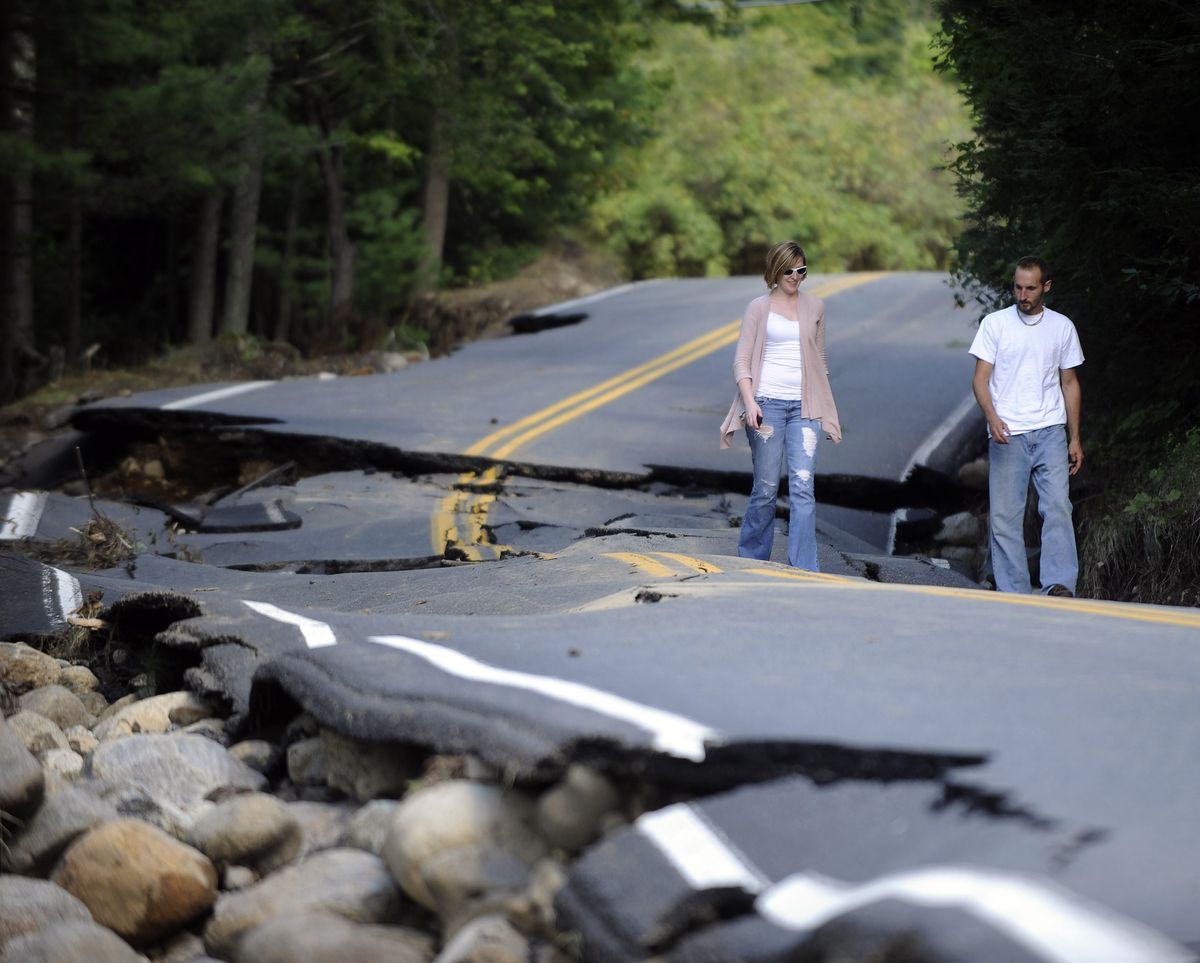Gadhafi’s wife, three children flee
Rebels want them back for trial

TRIPOLI, Libya – Moammar Gadhafi’s wife and three of his children fled Libya to neighboring Algeria on Monday, firm evidence that the longtime leader has lost his grip on the country.
Gadhafi’s whereabouts were still unknown and rebels are worried that if he remains in Libya, it will stoke more violence. In Washington, the Obama administration said it has no indication Gadhafi has left the country.
Rebels also said one of Gadhafi’s other sons, elite military commander Khamis, was probably killed in battle.
The Algerian Foreign Ministry said in a statement that Gadhafi’s wife Safia, his sons Hannibal and Mohammed, and his daughter Aisha entered the country across the land border. It said Algerian authorities have informed the United Nations Secretary General, the president of the U.N. Security Council, and the head of the Libyan rebels transitional leadership council.
Ahmed Jibril, an aide to rebel National Transitional Council head Mustafa Abdul-Jalil, said officials would “demand that Algerian authorities hand them over to Libya to be tried before Libyan courts.”
Gadhafi’s children played important roles in Libya’s military and economic life. Hannibal headed the maritime transport company; Mohammed the national Olympic committee. Aisha, a lawyer, helped in the defense of toppled Iraqi dictator Saddam Hussein in the trial that led to his hanging.
Ahmed Bani, military spokesman of the council, said he was not surprised to hear Algeria welcomed Gadhafi’s relatives. Throughout the six-month Libyan uprising, rebels have accused Algeria of providing Gadhafi with mercenaries to repress the revolt.
Over the weekend, the Egyptian news agency MENA, quoting unidentified rebel fighters, reported that six armored Mercedes sedans, possibly carrying Gadhafi’s sons or other top regime figures, had crossed the border at the southwestern Libyan town of Ghadamis into Algeria. Algeria’s Foreign Ministry had denied that report.
Bani said Monday that rebel forces may have killed Khamis Gadhafi in a clash Saturday. Rebels clashed with a military convoy near the town of Tarhouna, 50 miles southeast of Tripoli, destroying two vehicles in the convoy. The bodies in the cars were burned beyond recognition, he said, but captured soldiers said they were Khamis Gadhafi’s bodyguards.
“We are sure he is dead,” Col. Boujela Issawi, the rebel commander of Tarhouna, told the Associated Press. But then he cast some doubt, saying it was possible Gadhafi’s son was pulled alive from the car and taken to Bani Walid, a contested interior area.
Rebel leaders have started to set up a new government in the capital Tripoli after their fighters drove Gadhafi’s defenders out over the past week. Gadhafi’s whereabouts are still unknown, however, and people close to him have claimed he is still in the country and leading a fight to hold on to power.
“Gadhafi is still capable of doing something awful in the last moments,” rebel leader Abdul-Jalil told NATO officials earlier Monday in Qatar.
The focus of concern is Gadhafi’s hometown of Sirte, his last major stronghold in the country. The town, 250 miles east of Tripoli, is heavily militarized and shows no signs yet of surrendering even though rebels say they are trying to negotiate a bloodless takeover.
There was some fighting Monday on the eastern and western approaches to Sirte. Some have speculated that Gadhafi and other senior regime figures may have fled there.
A NATO officer, who asked not to be identified because of alliance rules, said there was fighting 30 miles east of Sirte. He said there are still clashes around Sirte, Bani Walid south of Misrata and Sebha further south.
Taking Sirte will mean getting past entrances that are reportedly mined and an elite military unit. Gadhafi’s tribe is the most powerful in the city. Libyans familiar with the coastal city on which Gadhafi has lavished building projects say its first line of defense is a heavily fortified area called the al-Wadi al-Ahmar, 55 miles to the east.
The rebels asked NATO on Monday to keep up pressure on remnants of Gadhafi’s regime.
“Even after the fighting ends, we still need logistical and military support from NATO,” Abdul-Jalil said in Qatar. NATO has been bombing Gadhafi’s forces since March under a United Nations mandate to protect Libyan civilians.
In Tripoli, rebel leaders were struggling with widespread shortages of water, fuel and electricity.
Some residents filled containers with drinking water from large trucks. One of the water truck drivers, Ramzi Abu Shabaan, said the shortages were a small price to pay. “I don’t care if we go without water for two months even – frizz-head is gone – it’s worth it,” using a commonly used derogatory nickname for Gadhafi.
Traffic was heavy Monday and long lines formed at gas stations. Shops selling clothes, shoes and toys opened for the first time since Aug. 20, when rebels stormed the city and fought Gadhafi forces in the streets for control.
Children accompanied their mothers and fathers into shops to pick clothes and toys for this week’s Eid al-Fitr, the three-day holiday that caps the Muslim fasting month of Ramadan.
“This will be the happiest Eid we celebrate,” said Munira Omar, 30, who bought her two daughters hair clips and dresses.